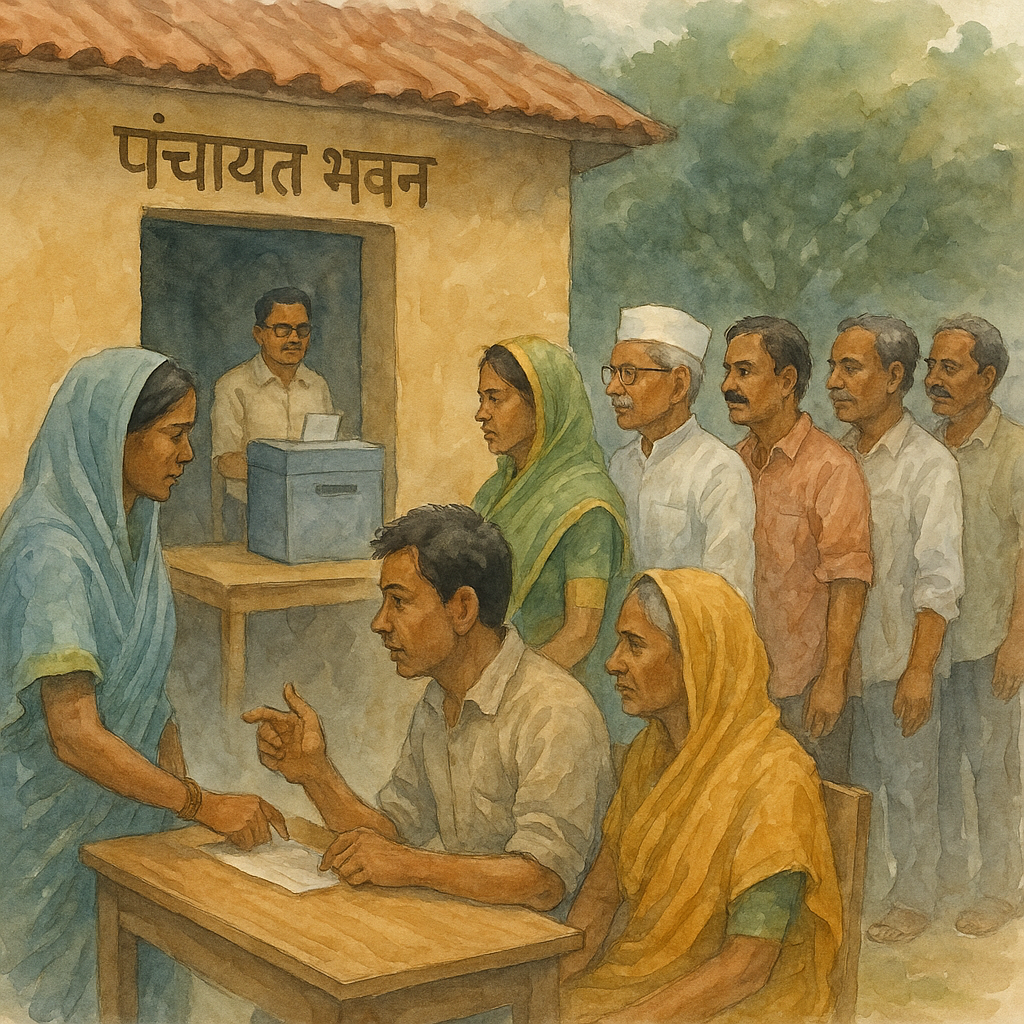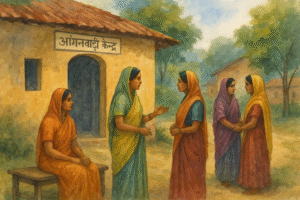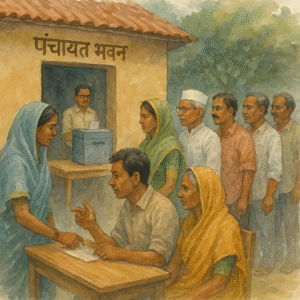Simplified Explanation of the Judgment (Approx. 800 words)
In Civil Writ Jurisdiction Case No. 1816 of 2021, the Patna High Court, through Hon’ble Mr. Justice Mohit Kumar Shah, delivered an oral judgment on 19 May 2021, reiterating that disputes relating to Panchayat elections cannot be raised through writ petitions once the election process has concluded. The Court dismissed the petition filed by a candidate seeking cancellation of another person’s election as a ward member on the ground that such challenges must be pursued through an election petition, not a writ under Article 226 of the Constitution.
The petitioner, a woman from Bhagalpur district, had contested for the post of ward member in the 2016 Gram Panchayat elections. She alleged that the private respondent (another candidate) had secured victory by committing irregularities during the election process. She approached the High Court in 2021, nearly five years after the declaration of results, praying for cancellation of the respondent’s membership and a declaration that she herself should be treated as the duly elected ward member. The petitioner also sought directions for lodging of an FIR against certain officials allegedly involved in election-related illegalities.
The State’s counsel raised a preliminary objection that the writ petition was not maintainable since the election had concluded long back, and the only lawful remedy available was to file an election petition under the Bihar Panchayati Raj Act, 2006.
After hearing the parties and examining the constitutional and statutory provisions, the Court dismissed the writ petition on multiple grounds.
Key Judicial Findings
- Bar under the Constitution and Bihar Panchayati Raj Act
The Court emphasized that Articles 243-O(b) and 243-ZG(b) of the Constitution of India expressly prohibit courts from interfering in matters relating to Panchayat and Municipal elections once results are declared. The appropriate and exclusive remedy is to file an election petition before the prescribed authority. The Court also referred to Section 138 of the Bihar Panchayati Raj Act, 2006, which reinforces this constitutional bar. The section explicitly states that: “No election to any Panchayat shall be called in question except by an election petition presented to the prescribed authority under this Act.” Accordingly, the writ petition was held not maintainable since it sought to challenge an election already concluded. - Reliance on Supreme Court Precedent
Justice Mohit Kumar Shah cited the landmark judgment of the Supreme Court in Mohinder Singh Gill & Anr. v. Chief Election Commissioner, New Delhi [(1978) 1 SCC 405], where it was held that: “Once the election process is complete, the only remedy available to an aggrieved person is to file an election petition.” The High Court observed that Article 226 jurisdiction cannot be used to question completed elections or their results. - Support from Division Bench Ruling of Patna High Court
The Court relied on a previous Division Bench judgment in Bibha Devi & Anr. v. The State Election Commission (Panchayat) & Ors., [2017 (1) PLJR 225], which elaborated the constitutional scheme under Article 243-O. The Bench had explained that:- The jurisdiction of the High Court under Article 226 stands barred in matters concerning Panchayat elections.
- Such jurisdiction can only be invoked to facilitate the election process, not to thwart or reverse it after completion.
- Delay and Laches
The Court noted that the election results were declared on 29 May 2016, and the petitioner filed her writ only in 2021, after a lapse of nearly five years. By then, the tenure of the elected representatives was about to end, and fresh Panchayat elections for 2021 were imminent. The Court held that such extraordinary delay made the petition liable to be rejected for laches, as the petitioner had “slept over her rights.” Courts exercise discretionary jurisdiction under Article 226, and it would be unjust to revive old disputes at the fag end of a term. - FIR Demand Not Maintainable under Writ Jurisdiction
Regarding the prayer for direction to lodge an FIR against certain election officers, the Court clarified that this relief could not be granted in a writ challenging an election. The petitioner was free to pursue such remedy before the appropriate forum in accordance with criminal law, but not under the present proceeding.
Court’s Conclusion
After reviewing the constitutional provisions, statutory law, and judicial precedents, the Court concluded that:
- The writ petition was barred by Article 243-O(b) and Section 138 of the Bihar Panchayati Raj Act.
- The petition was also hit by delay and laches.
- The only valid remedy available to the petitioner was to file an election petition before the prescribed authority.
Accordingly, the Court dismissed the writ petition as not maintainable.
Significance or Implication of the Judgment
- For Candidates and Voters: The ruling clarifies that once Panchayat election results are declared, no one can challenge them through a writ petition. The proper forum is an election tribunal, as prescribed by law.
- For Government and Election Authorities: The judgment protects the integrity and finality of the election process, ensuring that completed elections are not reopened through writ petitions.
- For Public Understanding: The Court reinforced that the Constitution itself restricts judicial interference in electoral matters, except through specific legal channels provided by law.
- For Legal Practitioners: The decision reiterates that Article 226 remedies cannot override express constitutional bars like Article 243-O. Practitioners must advise clients to pursue election petitions within statutory timelines.
Legal Issue(s) Decided and Court’s Reasoning
- Whether a writ petition is maintainable after Panchayat election results have been declared.
- Decision: No. The Constitution bars such interference; only an election petition is permissible.
- Whether filing a writ petition five years after the election is justified.
- Decision: No. The delay was inordinate and unexplained.
- Whether a writ court can direct filing of an FIR related to election irregularities.
- Decision: No. The remedy lies under criminal procedure, not in writ jurisdiction.
Judgments Referred by Parties
- Mohinder Singh Gill & Anr. v. Chief Election Commissioner, New Delhi, (1978) 1 SCC 405.
Judgments Relied Upon or Cited by Court
- Bibha Devi & Anr. v. State Election Commission (Panchayat) & Ors., 2017 (1) PLJR 225.
Case Title
CWJC No. 1816 of 2021 — Petitioner vs. State of Bihar & Ors.
Case Number
Civil Writ Jurisdiction Case No. 1816 of 2021.
Citation(s)
2021(2) PLJR 749
Coram and Names of Judges
Hon’ble Mr. Justice Mohit Kumar Shah.
Names of Advocates and who they appeared for
- For the Petitioner: Mr. Amrendra Kumar, Advocate.
- For the State/Respondents: Mr. Mritunjay Kumar, AC to AAG-6.
Link to Judgment
MTUjMTgxNiMyMDIxIzEjTg==—ak1—-am1–pBwjIorWo=
If you found this explanation helpful and wish to stay informed about how legal developments may affect your rights in Bihar, you may consider following Samvida Law Associates for more updates.








